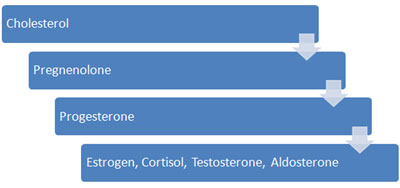HGH and Cancer: What You Need to Know

The ongoing debate between HGH and cancer continues to bring forth positive research. While it was once believed that high levels of insulin factor 1 (IGF-1), a hormone produced in the liver based on growth hormone input, increased the risk of prostate cancer numerous studies have proven this not to be true. To the contrary, many doctors believe that maintaining healthy levels of HGH and IGF-1 can protect the body from cancer by strengthening the immune system.
One area of study showing promising results focuses on the use of HGH and cancer growth in pediatric patients who previously had tumors. A report published in the Journal of Clinical Endocrinology & Metabolism shows that HGH use does not increase the recurrence of childhood brain tumors. This was only one of the numerous studies reported in another JCEM article that confirmed the benefits of GH therapy compared to the relatively low and largely theoretical potential for side effects or risks.
Does Growth Hormone Cause Cancer?
Perhaps the one-time belief that the use of HGH and cancer cells proliferation was due to how human growth hormone and IGF-1 increase cellular reproduction and growth is what fueled the debate on the use of this therapy and a greater risk of developing cancer. Early studies in the 1980’s were based on the use of pituitary-derived growth hormone from cadavers. Today, HGH is a recombinant supplement created by pharmaceutical companies worldwide and provides a high degree of safety when used to treat low growth hormone levels in both adults and children. It is also crucial to use only doctor-approved, high-quality brands of HGH in treatment.
Laboratory studies on animals often use much higher doses of HGH than what a doctor would prescribe to a human, rendering the results questionable, at the very least. It is already known that maintaining healthy hormone levels is crucial to the body, but increasing the same vital chemicals higher than normal is not advisable and could lead to side effects, acromegaly, and, potentially increase the risk of cancer.
Individuals with a previous incidence of cancer, based on numerous childhood studies, are at no greater risk of recurrence than the general population of developing a malignancy or tumor in the first place. This has shown HGH to be safe to use for people following successful treatment of cancer.
Can You Take HGH If You Have Cancer?
Additional studies have focused their efforts on the use of HGH and cancer treatment together, especially in the case of chemoresistant tumors. Here, it is shown how HGH-based gene therapy could have positive outcomes in the treatment of these tumors.
Regarding HGH and prostate cancer, although one study linked higher levels of IGF-1 to prostate cancer, this theory has been disputed by other research that shows how HGH therapy can lower PSA levels by 50% during a one to two month period of treatment.
There has also been no increase from the use of HGH and breast cancer incidence. Again, it is imperative to work with a qualified hormone specialist when looking to correct any hormonal imbalance, as increasing HGH levels higher than their natural point is when problems could occur.
The role of HGH and skin cancer treatment is a bit different. For people with active melanoma, increased HGH and IGF-1 could theoretically promote the clinical growth of malignant and benign melanocytic neoplasms. Again, this is due to increased cellular regeneration. However, because HGH stimulates the immune system, it may help protect against this and other forms of cancer. There have yet to be studies confirming or denying an increased risk of melanoma after HGH treatment.
In the majority of instances, an adult can receive supplemental HGH after cancer if diagnosed with growth hormone deficiency. The hormone specialist will most likely request the approval of the oncologist before proceeding with treatment.
To discuss your personal concerns about the use of HGH and cancer, please contact the hormone specialists at HT Medical Center for a free and confidential consultation.

















